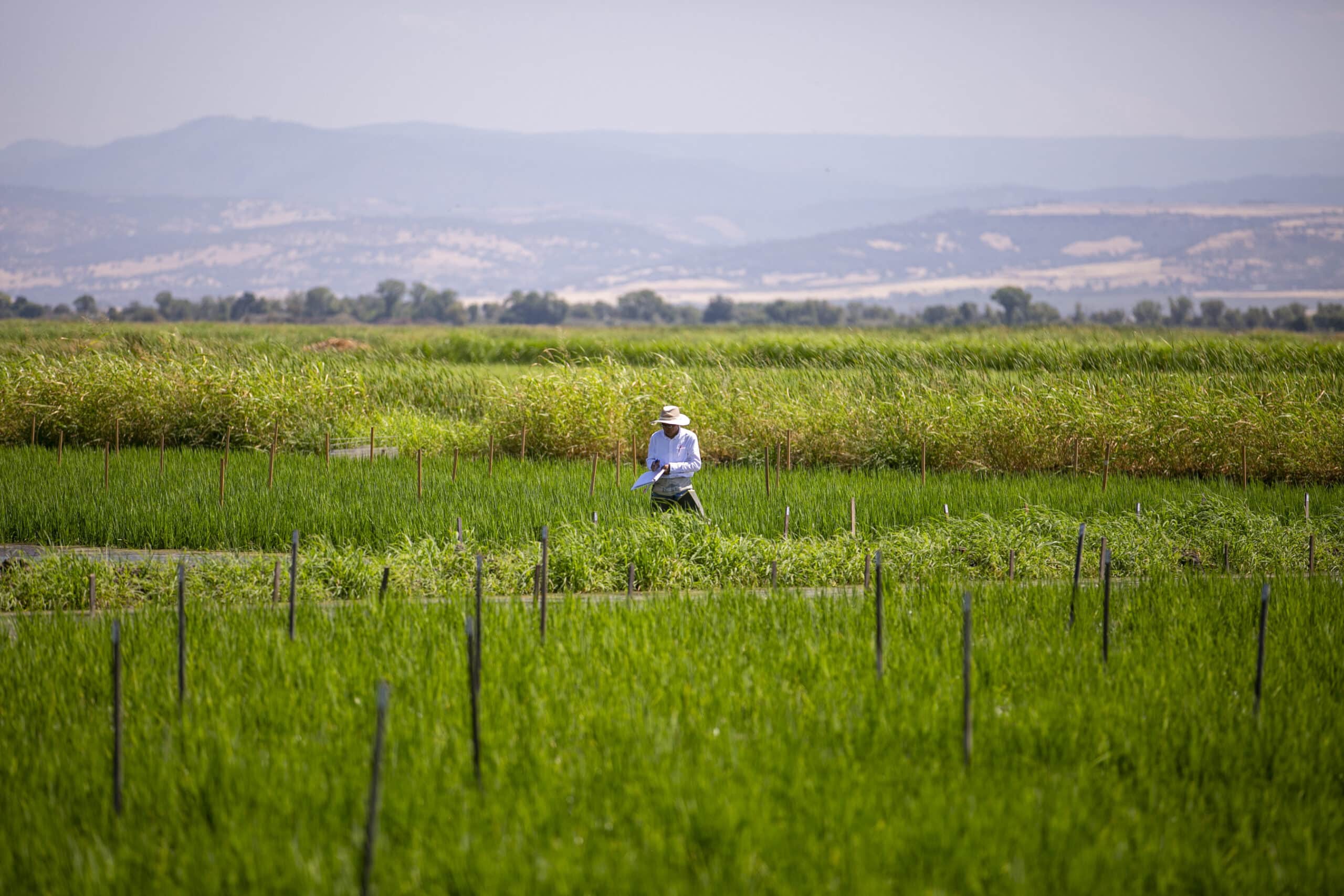Key Takeaways:
- Lundberg Family Farms is accelerating research and development of rice varieties compatible with climate-friendly regenerative organic farming.
- The company has introduced Black Pearl Rice, a Regenerative Organic Certified® variety that took 12 years to develop and produces 25% more rice per acre.
- Lundberg has trialed over 80,000 unique breeding lines in the past decade, with a focus on high-yield, resilient rice varieties.
- The company’s 50-year-old breeding program is the only specialty organic rice program of its kind in the U.S.
- New rice varieties must now meet a minimum 10% increase in yield per acre to be commercialized.
Lundberg Family Farms Advances Regenerative Organic Rice Research
Lundberg Family Farms, a Regenerative Organic Certified® brand known for its California-grown rice, has announced an expanded commitment to developing climate-friendly rice varieties that thrive under organic farming practices. The company introduced Black Pearl Rice, a high-yield, antioxidant-rich variety developed over 12 years to flourish in California’s Sacramento Valley while producing 25% more rice per acre.
This initiative marks a milestone in Lundberg’s proprietary breeding program, which celebrates its 50th anniversary this year as the only specialty organic rice breeding program in the U.S.
“In the 1970s, my dad started our nursery program to bring diverse rice varieties to American consumers,” said Bryce Lundberg, Vice President of Agriculture at Lundberg Family Farms. “We quickly realized we had to develop our own varieties to ensure they were not only delicious but also adapted to organic farming. We continue investing in this work because the quality of our food and the future of our planet depend on it.”
Lundberg Family Farms Developing Resilient, Climate-Smart Rice Varieties
Unlike conventional breeding programs that focus on herbicide-resistant crops, Lundberg develops rice varieties that support regenerative organic farming. This approach includes techniques such as drowning and drying weeds naturally instead of relying on chemical herbicides.
A UC Davis study found that Lundberg’s Dry Up method of organic weed management can reduce global warming potential (GWP) by 49% compared to continuous flood irrigation.
“The Lundbergs have always been obsessed with rice, from going organic before it was mainstream to creating a market for brown rice,” said Craig Stevenson, CEO of Lundberg Family Farms. “But great rice has to taste as good as it is sustainable. Through our breeding program, we’re developing natural, non-GMO varieties that deliver on quality, resilience, and sustainability.”
Scaling Up Rice Breeding for Sustainability
At any given time, Lundberg’s nursery tests thousands of rice varieties, looking for traits such as:
✅ High yield potential – Produces more rice per acre.
✅ Early maturity – Conserves resources with shorter growing seasons.
✅ Lodging resistance – Ensures strong plants that remain upright for easier harvest.
✅ Seedling vigor – Competes against weeds without chemical inputs.
✅ Exceptional flavor and texture – Cooks consistently and tastes great.
Over the past 10 years, Lundberg has trialed over 80,000 breeding lines, with a focus on varieties that improve appearance, aroma, yield, and resilience in Northern California’s climate.
New goal: Moving forward, any new rice variety must yield at least 10% more rice per acre before it is commercialized.
Expanding the Organic Rice Portfolio
Lundberg is accelerating commercialization, with three new varieties joining Black Pearl Rice:
- Red Jasmine Rice
- Arborio Rice
- Additional high-yield, climate-resilient varieties in development
These efforts align with Lundberg’s mission to transition all its organic rice to Regenerative Organic Certified® varieties and ensure long-term food security in a changing climate.
“We’re taking our rice obsession to the next level by developing varieties that maximize sustainability and taste,” added Stevenson.



1 Comment